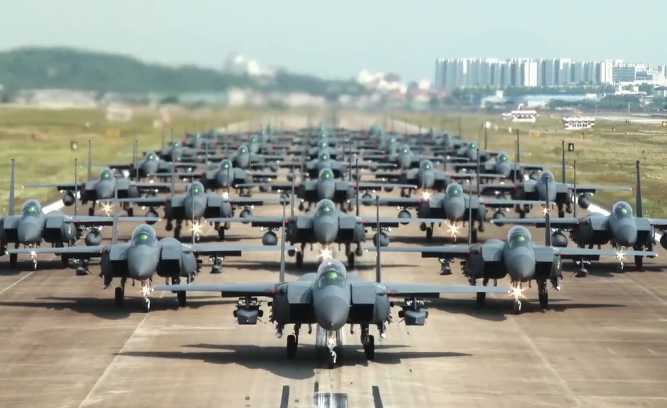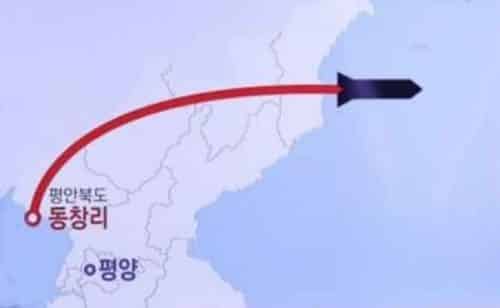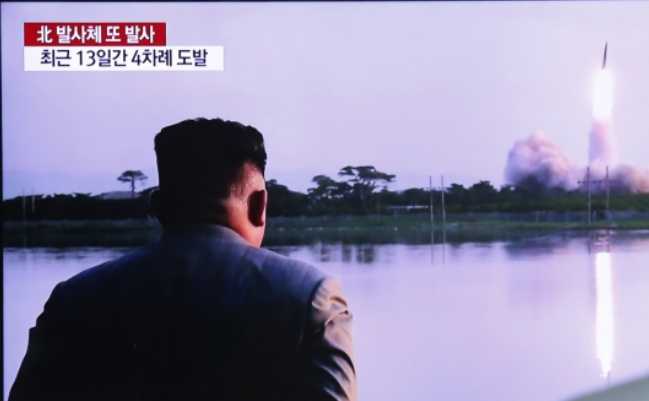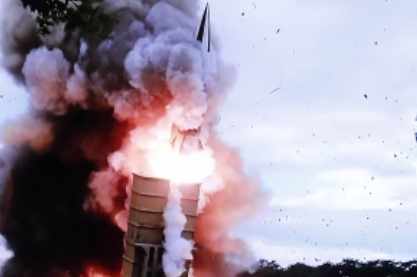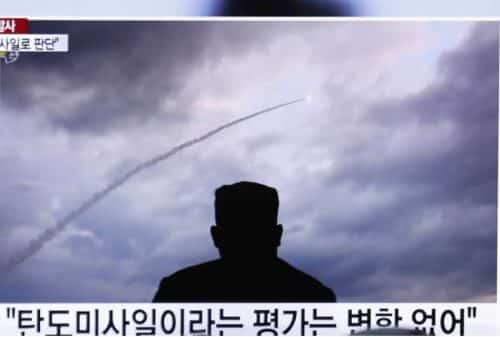SEOUL – North Korea conducted an apparent short-range ballistic missile test early Thursday, its first such launch during U.S. President Joe Biden’s administration.
The North fired two ballistic missiles that fell outside Japan’s waters, according to Japanese Prime Minister Yoshihide Suga.
South Korea’s Ministry of National Defense said the two projectiles were launched from South Hamgyong province and traveled 450 kilometers at an altitude of 60 kilometers.
Capt. Mike Kafka, public affairs officer for U.S. Indo-Pacific Command, said in a statement that officials were aware of the launches and were monitoring the situation.
“This activity highlights the threat that North Korea’s illicit weapons program poses to its neighbors and the international community. The U.S. commitment to the defense of the Republic of Korea and Japan remains ironclad,” the statement said.
This is North Korea’s first ballistic missile test in about a year, although it has more recently fired smaller projectiles.
The launches come as the Biden administration is in the final stages of its North Korea policy review and has repeatedly spoken of its desire to renew diplomacy with the North.
Pyongyang has said it is not interested in talks until the U.S. drops its “hostile policy,” a reference to sanctions, military exercises and other U.S. activities on the Korean Peninsula.
North Korea has boycotted talks for over a year and seems intent on ramping up pressure on Washington.
On Sunday, the North launched two cruise missiles from its western coast.
U.S. officials downplayed the importance of that launch, saying it was part of North Korea’s “normal” military tests.
Cruise missiles typically fly at lower altitudes and often for shorter distances than do ballistic missiles.
North Korea is banned from any ballistic missile activity by United Nations Security Council resolutions.[content id=”79272″]
More tests coming?
Many experts had expected North Korea to resume tests near the outset of Biden’s term, as it has done with past U.S. administrations.
North Korea conducts missile tests for multiple reasons, including verifying the functionality of its arsenal, bolstering its domestic support, and sending a message to its adversaries.
“North Korea appears to be returning to a familiar pattern of using provocations to raise tensions and garner attention,” Jean Lee, director of the Korea program at the Washington-based Wilson Center, said.
“With the United States hinting that it will seek to tighten the sanctions regime, North Korea will be looking to expand its arsenal by ramping up testing,” she added.
White House officials have said they are exploring both diplomacy and sanctions as they work to convince North Korea to give up its nuclear weapons.
Last week, a senior North Korean foreign ministry official said talking with the U.S. would be a “waste of time” and threatened to “readily react” to any further sanctions.
North Korean leader Kim Jong Un said in January of last year that he no longer felt bound by his self-imposed moratorium on long-range missile and nuclear tests.
Pyongyang has not conducted a nuclear test or launched an intercontinental ballistic missile since 2017, before his diplomacy with former U.S. President Donald Trump.
Kim has repeatedly tested shorter-range ballistic missiles, but Trump played down those tests, saying they were unimportant.
[content id=”52927″]

